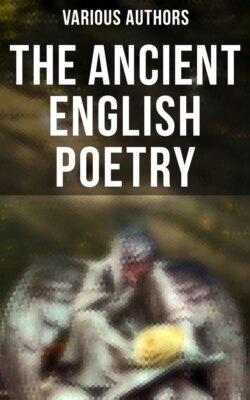Читать книгу The Ancient English Poetry - Various Authors - Страница 35
На сайте Литреса книга снята с продажи.
ОглавлениеV.
EDWARD, EDWARD.
Table of Contents
A Scottish Ballad.
From a MS. copy transmitted from Scotland.
[The affectedly antique orthography of this ballad has caused some to suppose that it was a modern invention, probably by Lady Wardlaw, the author of Hardyknute, but Motherwell obtained another version from the recitation of an old woman, which he printed in his Minstrelsy under the title of "Son Davie, son Davie." He there says that there is reason to believe that Lord Hailes "made a few slight verbal improvements in the copy he transmitted, and altered the hero's name to Edward, a name which, by the bye, never occurs in a Scottish ballad except where allusion is made to an English king."
There is a Swedish ballad of the same character entitled The Fratricide's Lament and Dialogue with his Mother before he wanders away from home for ever.
The form of a dialogue between a mother and her son is a favourite one in the old ballads, and "Lord Donald" in Kinloch's Scottish Ballads and "Lord Randal" in Scott's Minstrelsy bear some likeness to the ballad of "Edward." The hero is supposed to have been poisoned by eating toads prepared as a dish of fishes, and the last stanza of Kinloch's ballad is as follows:—
"What will ye leave to your true love, Lord Donald,
My son?
What will ye leave to your true love,
My jollie young man?
The tow and the halter for to hang on yon tree,
And lat her hang there for the poysoning o' me."]
Quhy dois your brand sae drop wi' bluid,411 Edward, Edward? Quhy dois your brand sae drop wi' bluid? And quhy sae sad gang yee, O?412 O, I hae killed my hauke sae guid,5 Mither, mither: O, I hae killed my hauke sae guid: And I had nae mair bot hee,413 O.
Your haukis bluid was nevir sae reid,
Edward, Edward.10
Your haukis bluid was nevir sae reid,
My deir son I tell thee, O.
O, I hae killed my reid-roan steid,
Mither, Mither:
O, I hae killed my reid-roan steid,15
That erst was sae fair and free, O.
Your steid was auld, and ye hae gat mair,
Edward, Edward:
Your steid was auld, and ye hae gat mair,
Sum other dule ye drie,414 O.20 O, I hae killed my fadir deir, Mither, mither: O, I hae killed my fadir deir, Alas! and wae is me, O!
And quhatten penance wul ye drie415 for that,25 Edward, Edward? And quhatten penance will ye drie for that? My deir son, now tell me, O. Ile set my feit in yonder boat, Mither, mither:30 Ile set my feit in yonder boat, And Ile fare416 ovir the sea, O.
And quhat wul ye doe wi' your towirs and your ha',417 Edward, Edward? And quhat wul ye doe wi' your towirs and your ha',35 That were sae fair to see, O? Ile let thame stand til they doun fa',418 Mither, mither: Ile let thame stand til they doun fa', For here nevir mair maun I bee, O.40
And quhat wul ye leive to your bairns and your wife,
Edward, Edward?
And quhat wul ye leive to your bairns and your wife,
Quhan ye gang ovir the sea, O?
The warldis room,419 let thame beg throw life,45 Mither, mither: The warldis room, let thame beg throw life, For thame nevir mair wul I see, O.
And quhat wul ye leive to your ain mither deir,
Edward, Edward?50
And quhat wul ye leive to your ain mither deir?
My deir son, now tell me, O.
The curse of hell frae me sall ye beir,
Mither, mither:
The curse of hell frae me sall ye beir,55
Sic counseils ye gave to me, O.
This curious song was transmitted to the editor by Sir David Dalrymple, Bart., late Lord Hailes.
FOOTNOTES:
411. [why does your sword so drop with blood.]
412. [and why so sad go ye.]
413. [no other but he.]
414. [some other grief you suffer.]
415. [undergo.]
416. [pass.]
417. [hall.]
418. [fall.]
419. [the world's large.]
